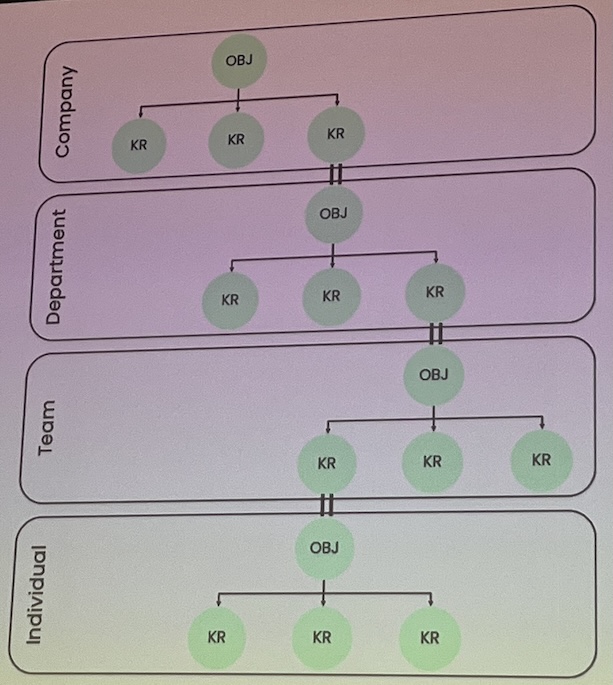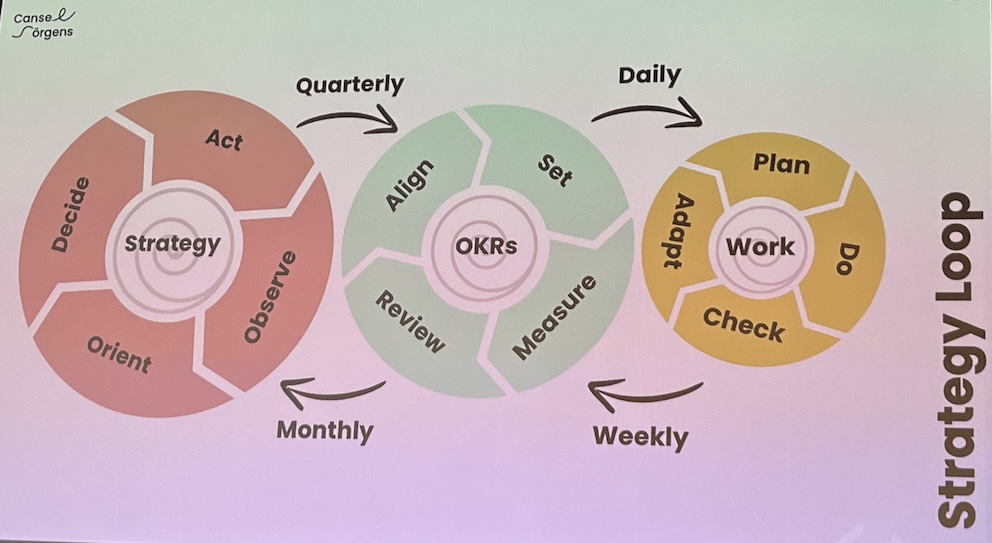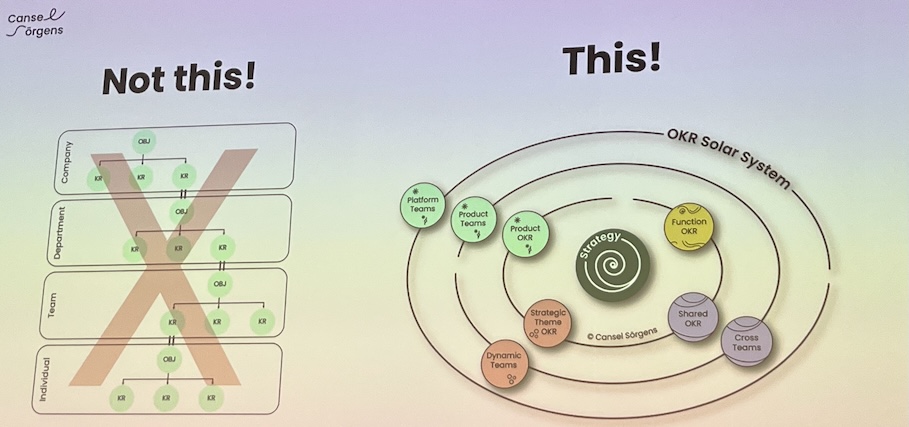“If you hate OKRs, someone is doing them wrong. Maybe you, maybe your boss.” -Christina Wodtke.
Many organisations struggle with OKRs, often finding them frustrating and ineffective. But the problem isn’t the framework—it’s how it’s implemented. Cascading goals, task-focused execution, and rigid structures create silos and disengagement, stifling the true potential of OKRs.
In this talk, we’ll start by uncovering common dysfunctions that derail OKR initiatives and demystify why they fail to deliver results. Then, we’ll introduce a fresh, proven approach: the OKR Solar System. This dynamic model replaces top-down cascades with cross-team collaboration, enabling strategic alignment that adapts to your organisation’s evolving needs.
You’ll learn how the OKR Solar System fosters aligned autonomy, breaks down silos, and empowers teams to focus on shared outcomes. Real-world case studies will showcase its transformative impact on strategy execution. Whether you’re just starting with OKRs, scaling them, or looking for a reset, this session will inspire you to reimagine what’s possible.
Why do you think strategic initiatives fail?
misalignment, control, focus, fatigue, top down, …
70% of strategies fail because of misalignment and unclear strategies
OKR: measure strategy
- Vision: 5-10 yr
- Strategy: 1-2 yr
- OKR: 3-6 months
- Work
OKR:
- Objective: what do we want to achieve?
- Key Results: how will we know if we achieved it?
- Initiatives: what will we do to drive progress?
initiatives is something I do in order to achieve something
the key result indicates whether I achieved it
initiatives are many, many things we do to try something, experiments, if we did not achieve it, we try something else
Outcome over Output
Put the behavioural change in the focus, the customer we are not measuring productivity, how fast, how much, … but what kind of effect has what we do
classic approach to OKR

cascade OKR from company to department to team to individual, the objective becomes the key result of the next level
cascaded and org-chart copied OKRs
- slow down because of dependencies, we wait for the other team to complete our team’s OKR
- kill engagement
- block innovation
If you hate OKRs, someone is doing them wrong. Maybe you, maybe your boss.
– Radical Focus, Christina Wodtke
most orgs ask to fix alignment, but Alignment is NOT telling others what to do, this is being in control of what happens next
Alignment is channeling efforts in the same direction
what helps to get true alignment: strategic focus and shared goal
Strategy first
-> some books:
- Playing to Win
- Good Strategy, Bad Strategy, Richard Rumelt
- The North Star Playbook
- Wardley Maps
Strategy is directional and creates focus without saying what exactly to do
– Richard Rumelt
- Diagnosis: articulate the problem
- Guiding Policy: directional and focused
- Coherent Actions: actionable and interrelated
Strategy loop

10 mins strategy a day keeps the trouble away
if we get this right, we do not need to cascade, cascade is a result of a lack of strategy
-> OKR solar system


- Sun = strategy
- Planets = teams
- Satellites = enablers, teams supporting other teams closer to customers
- Orbits = interconnected
all at its own pace
not necessarily follow on the quarterly pace, some teams need 6 months others 2 months
Book: Objectives & Key Results, Cansel Sörgens (free download)
What is a team?
Team is those who need one another to act
– Peter Senge
most of the time not represented in an org-chart -> dynamic re-teaming
create teams based on a focus, goal, this is the responsibility of the team
Dynamic Markets need Dynamic Organisations
static teams do not exist anymore, people leave
Conclusion
Don’t cascade goals!
Build a Solar System!